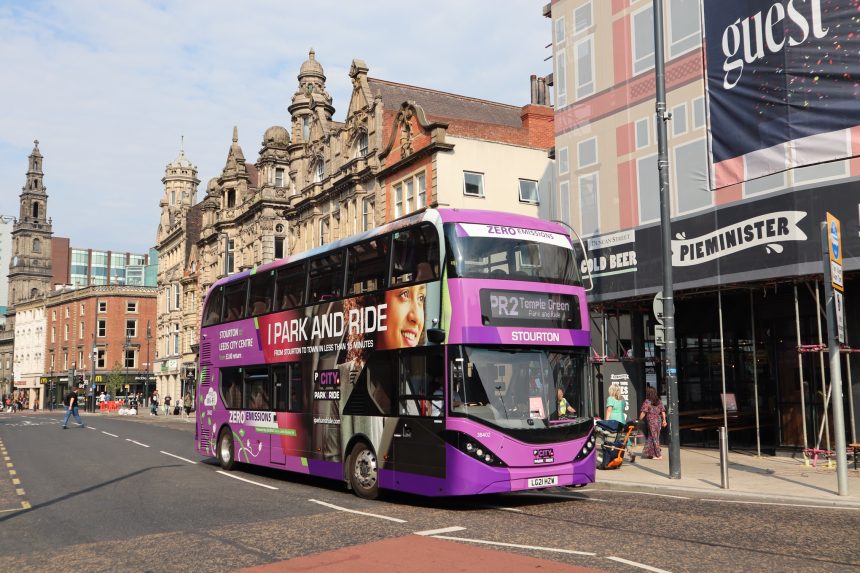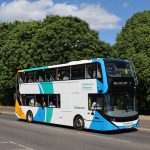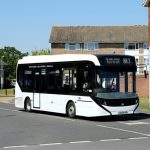The zero-emission bus fleet in city regions in England must expand by around 1,200 vehicles each year until 2036 if those locations are to meet net-zero targets, the Urban Transport Group (UTG) has said.
That finding is within a report, A Smoother Ride: Unlocking a green bus revolution, published on 4 April. It highlights that of the 16,500 buses that were operating in London and English metropolitan areas at the end of March 2023 according to Department for Transport figures, only 1,200 were zero-emission.
The latter figure has grown since then, but UTG says that the transition from diesel is still not happening quickly enough. It thus wants a stable environment and long-term certainty, coupled to suitable funding, to accelerate the zero-emission bus uptake rate in city regions in England.
London and other metropolitan areas have net-zero targets via which bus fleets must move to battery-electric or hydrogen power by dates between 2030 and 2036. UTG adds that around 15,000 such buses will be required by the latter date to satisfy those plans.
While bus operators, manufacturers and local authorities have already worked to accelerate the rollout of zero-emission buses, a foreword from UTG Director James Prince notes that further government support is required to overcome what he terms “the decarbonisation gap.”
The report is a third and final instalment of bus policy papers published by UTG. It first aired its position on changes to legislation, and then examined the role of capital investment in making services more efficient. “Together, these reports have rightly put the bus front and centre of future public transport policy,” adds Mr Prince.
UTG represents passenger transport authorities and says that its members “do not yet have the required secured funding to achieve their fleet decarbonisation plans.” It highlights how there are currently no funding streams for zero-emission bus delivery beyond 2025 and that the task of electrifying depots is complex and investment-heavy.
Through recommendations in the report, UTG is calling for:
- A long-term stable funding stream for zero-emission bus and infrastructure procurement
- Policy and funding certainty alongside wider pro-bus measures
- Increased procurement pipeline visibility to give confidence and enable long-term planning
- Boosted manufacturing and delivery capacity
- Exploration of viable vehicle, charging and safety specifications to drive efficiency and economy of scale
- Address of grid capacity issues and a streamlined process for infrastructure installation
- Support for zero-emission bus innovations, including hydrogen and repower of diesel vehicles.
Speaking about the report’s findings, Mr Prince says: “The prize of getting more zero-emission buses on our streets is huge – from lower emissions and cleaner air to supporting economic growth through new jobs and increasing bus passenger numbers through modal shift from private car use.
“City regions have made great progress to date and are clear in their determination to become net-zero. But there are multiple challenges to overcome in manufacturing and deploying the thousands of zero-emission buses – and installing their associated infrastructure – that are needed to hit those ambitious targets.
“This report sets out the opportunity for the transport sector to work hand-in-hand with government to unlock a green bus revolution.”
Latest UTG report here.



























